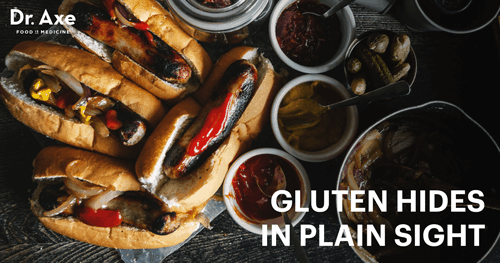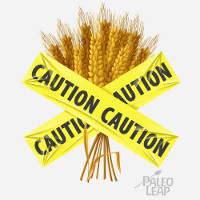Ready to leave?
Oops ! Condition name you have entered is invalid.
You are now leaving Aposbook.com and going to an external site managed by another organization.
Please confirm your email address and try to login again.
This account has been deleted. do you want to restore it?

Validate your email
A verification link will be sent to within the next 2 minutes. Please click it to validate your e mail.
*If you didn't get the link, please check your spam folder
Welcome to Aposbook,
As a registered user, you can benefit from the various free tools and services that we provide.
All you need to do is log in to start discussing with others, interacting, asking questions, and sharing your point of view about the various topics.
You can also write reviews and testimonials about any natural solution you have tried and share your experience. Your feedback can be very helpful.
If you are a health expert, you can add information about any topic or suggest text edit. You can also publish content, including articles and videos, about any topic from the related library section.
Together we can help.
The Aposbook Team
Forgot Password?
A validation link will be sent to you by email. Please confirm your address to log in
*If you didn't get the link, please check your spam folder
Please log in to use this feature
Your account has been suspended because you have violated our code of conduct. If you think this was a mistake, you can contact us by email at: support@aposbook.com "Contact us" form.
Success! Thank you for your feedback. Your contribution can make a difference. Together we can help each other.


Diseases and conditions
Celiac Disease
Celiac Disease: Causes, Prevention, and Natural Treatments
Complete Guide to Celiac Disease
What is Celiac Disease
Celiac disease, also known as celiac sprue, is an autoimmune disorder characterized by an adverse reaction to gluten, a protein found in wheat, barley, and rye. In individuals with celiac disease, consuming gluten triggers an abnormal immune response. Specifically, the body reacts to gliadin, a component of gluten.
When gluten is ingested, the immune system mistakenly targets and attacks the lining of the small intestine. This immune response causes inflammation and damages the villi—small, finger-like projections ...
What is Celiac Disease
Celiac disease, also known as celiac sprue, is an autoimmune disorder characterized by an adverse reaction to gluten, a protein found in wheat, barley, and rye. In individuals with celiac disease, consuming gluten triggers an abnormal immune response. Specifically, the body reacts to gliadin, a component of gluten.
When gluten is ingested, the immune system mistakenly targets and attacks the lining of the small intestine. This immune response causes inflammation and damages the villi—small, finger-like projections in the small intestine that are crucial for nutrient absorption. As a result, the damaged villi cannot effectively absorb nutrients, leading to various gastrointestinal and systemic symptoms.
Celiac Disease Causes
Celiac disease is primarily caused by an immune reaction to gluten. When individuals with celiac disease ingest gluten, their immune system triggers an inflammatory response that damages the lining of the small intestine.
This damage impairs nutrient absorption and leads to various gastrointestinal and systemic symptoms. The exact cause of why some people develop celiac disease while others do not is still under research, but it involves a combination of genetic and environmental factors.
Celiac Disease Causes
Celiac disease is primarily caused by an immune reaction to gluten. When individuals with celiac disease ingest gluten, their immune system triggers an inflammatory response that damages the lining of the small intestine.
This damage impairs nutrient absorption and leads to various gastrointestinal and systemic symptoms. The exact cause of why some people develop celiac disease while others do not is still under research, but it involves a combination of genetic and environmental factors.
Celiac Disease Risk Factors
Several factors can increase the likelihood of developing celiac disease:
- Genetics: Celiac disease often runs in families. The majority of people with celiac disease have specific genetic markers called HLA-DQ2 or HLA-DQ8. However, not everyone with these markers will develop the condition.
- Family History: having a first-degree relative (parent, sibling) with celiac disease increases the risk.
- Autoimmune Disorders: individuals with other autoimmune disorders, such as Type 1 diabetes or autoimmune thyroid disease, are at higher risk ...
Celiac Disease Risk Factors
Several factors can increase the likelihood of developing celiac disease:
- Genetics: Celiac disease often runs in families. The majority of people with celiac disease have specific genetic markers called HLA-DQ2 or HLA-DQ8. However, not everyone with these markers will develop the condition.
- Family History: having a first-degree relative (parent, sibling) with celiac disease increases the risk.
- Autoimmune Disorders: individuals with other autoimmune disorders, such as Type 1 diabetes or autoimmune thyroid disease, are at higher risk.
- Age and Gender: Celiac disease can develop at any age but is commonly diagnosed in childhood or early adulthood. It is also more prevalent in females than males.
- Environmental Factors: certain environmental triggers, like gastrointestinal infections or stressful life events, may play a role in the onset of celiac disease.
Celiac Disease Symptoms
There are over 200 symptoms of Celiac disease including abdominal pain, bloating, nausea, vomiting, anemia, diarrhea, gas, itchy rash, joint pain, and weight loss.
These symptoms can vary widely and may affect multiple systems in the body including:
- Digestive Symptoms: abdominal pain, bloating, diarrhea, constipation, and nausea are common. Children may also experience poor growth and weight loss.
- Skin Issues: dermatitis herpetiformis, characterized by itchy, blistering skin rash, is a common skin manifestation.
- Neurological Symptoms: headaches, neuropathy, and ...
Celiac Disease Symptoms
There are over 200 symptoms of Celiac disease including abdominal pain, bloating, nausea, vomiting, anemia, diarrhea, gas, itchy rash, joint pain, and weight loss.
These symptoms can vary widely and may affect multiple systems in the body including:
- Digestive Symptoms: abdominal pain, bloating, diarrhea, constipation, and nausea are common. Children may also experience poor growth and weight loss.
- Skin Issues: dermatitis herpetiformis, characterized by itchy, blistering skin rash, is a common skin manifestation.
- Neurological Symptoms: headaches, neuropathy, and cognitive issues like "brain fog" may occur.
- Systemic Symptoms: fatigue, anemia, and osteoporosis are also associated with celiac disease due to malabsorption of essential nutrients.
- Reproductive Issues: infertility and miscarriage can be linked to celiac disease in both men and women.
Celiac Disease Diagnosis
Diagnosing celiac disease involves a combination of clinical evaluation and laboratory tests:
- Blood Tests: specific antibody tests, such as tissue transglutaminase (tTG) antibodies and endomysial antibodies (EMA), are used to screen for celiac disease.
- Biopsy: if blood tests are positive, a small intestine biopsy is typically performed. During an endoscopy, a small tissue sample is taken to assess for damage to the villi, which are small, finger-like projections in the small intestine.
- Genetic Testing: genetic testing for ...
Celiac Disease Diagnosis
Diagnosing celiac disease involves a combination of clinical evaluation and laboratory tests:
- Blood Tests: specific antibody tests, such as tissue transglutaminase (tTG) antibodies and endomysial antibodies (EMA), are used to screen for celiac disease.
- Biopsy: if blood tests are positive, a small intestine biopsy is typically performed. During an endoscopy, a small tissue sample is taken to assess for damage to the villi, which are small, finger-like projections in the small intestine.
- Genetic Testing: genetic testing for HLA-DQ2 and HLA-DQ8 can support the diagnosis, although their presence alone is not diagnostic.
- Checking for Other Conditions: It is crucial to rule out other conditions with similar symptoms, such as irritable bowel syndrome (IBS) or Crohn’s disease.
Natural Solutions for Managing Celiac Disease
While a strict gluten-free diet is the cornerstone of managing celiac disease, there are several other natural therapies to complement this approach. Click on natural treatments for Celiac disease to find a detailed list of all the natural solutions to treat and prevent Celiac disease, including various natural therapies, diet programs, alternative medicine, vitamins, supplements, herbal medicine, and home remedies. You can also go to www.aposbook.com to find all the natural treatments for ...
Natural Solutions for Managing Celiac Disease
While a strict gluten-free diet is the cornerstone of managing celiac disease, there are several other natural therapies to complement this approach. Click on natural treatments for Celiac disease to find a detailed list of all the natural solutions to treat and prevent Celiac disease, including various natural therapies, diet programs, alternative medicine, vitamins, supplements, herbal medicine, and home remedies. You can also go to www.aposbook.com to find all the natural treatments for any medical condition IN ONE CLICK.
These natural therapies can be grouped into categories such as dietary approaches, herbal remedies, and supplements.
1. Dietary Approaches
- Gluten-Free Diet: the primary treatment for Celiac disease is a lifelong gluten-free diet, which involves avoiding all foods containing wheat, barley, rye, and their derivatives. This helps prevent immune reactions and allows the intestines to heal, thus helping to alleviate symptoms and support overall health.
- Paleo Diet: some individuals with celiac disease find relief by following the Paleo diet, which excludes grains, legumes, and processed foods, focusing instead on meats, vegetables, fruits, and nuts. This diet can help reduce inflammation and support gut health.
- Low FODMAP Diet: for those experiencing persistent gastrointestinal symptoms despite being on a gluten-free diet, a Low FODMAP diet might be beneficial. This diet limits fermentable carbohydrates that can cause bloating, gas, and discomfort.
2. Herbal Remedies
- Aloe Vera: Aloe vera juice is known for its soothing properties and may help reduce inflammation in the digestive tract, offering relief from symptoms like bloating and discomfort.
- Slippery Elm: this herb can form a protective coating in the intestines, helping to soothe irritation and support healing in the gut lining.
- Turmeric: with its potent anti-inflammatory properties, turmeric may help reduce inflammation in the intestines, aiding in the management of celiac disease symptoms.
3. Supplements
- Probiotics: probiotic supplements can help restore the balance of healthy bacteria in the gut, potentially reducing gastrointestinal symptoms like bloating and improving overall digestive health.
- Digestive Enzymes: certain digestive enzyme supplements can assist in breaking down food, easing digestion, and reducing symptoms. However, they should not be used as a substitute for a gluten-free diet.
- Iron Supplements: iron deficiency is common in celiac disease due to malabsorption. Iron supplements can help restore normal iron levels, preventing fatigue and anemia.
- Calcium and Vitamin D: celiac disease can lead to poor absorption of calcium and vitamin D, that's why supplementation is often necessary to prevent osteoporosis and maintain bone health.
- Vitamin B12 and Folate: deficiencies in these essential nutrients can lead to anemia and neurological issues. Supplementing with vitamin B12 and folate supports overall health and well-being.
4. Lifestyle and Stress Management
- Mindful Eating: practicing mindful eating can help improve digestion and reduce stress-related symptoms. Eating slowly and focusing on the sensory experience of eating can enhance nutrient absorption and prevent overeating.
- Stress Management: stress can exacerbate celiac disease symptoms. Techniques such as yoga, meditation, and deep breathing exercises can help manage stress levels and support overall well-being.
Medical Treatment for Celiac Disease
The primary goal of medical treatment for celiac disease is to manage symptoms, promote healing of the intestinal lining, and address any complications that arise. While a gluten-free diet is essential for controlling the condition, some patients may require additional medical interventions to support their health and well-being.
1. Medications for Symptom Management
- Corticosteroids: in cases where celiac disease causes severe intestinal inflammation or when symptoms persist despite a gluten-free diet, corticosteroids may be prescribed ...
Medical Treatment for Celiac Disease
The primary goal of medical treatment for celiac disease is to manage symptoms, promote healing of the intestinal lining, and address any complications that arise. While a gluten-free diet is essential for controlling the condition, some patients may require additional medical interventions to support their health and well-being.
1. Medications for Symptom Management
- Corticosteroids: in cases where celiac disease causes severe intestinal inflammation or when symptoms persist despite a gluten-free diet, corticosteroids may be prescribed. These powerful anti-inflammatory drugs help reduce inflammation and allow the intestines to heal.
- Immunosuppressants: for individuals with refractory celiac disease—where the condition does not respond to a gluten-free diet—immunosuppressants like azathioprine or mercaptopurine may be necessary. These medications help suppress the immune system's abnormal response, reducing ongoing damage to the intestines.
2. Management of Associated Conditions
- Dermatitis Herpetiformis Treatment: dermatitis herpetiformis is a chronic skin condition linked to celiac disease. In addition to adhering to a gluten-free diet, medications like dapsone may be prescribed to control the rash and relieve itching. Dapsone is an anti-inflammatory medication specifically used to manage this skin condition.
- Bone Health Management: due to the risk of osteoporosis in individuals with celiac disease, bone density monitoring is often recommended. If osteoporosis or osteopenia is detected, bisphosphonates or other medications may be prescribed to strengthen bones and reduce the risk of fractures.
3. Regular Monitoring and Follow-Up Care
- Ongoing Medical Supervision: regular follow-up visits with a healthcare provider are crucial for monitoring the effectiveness of treatment and overall health. This may involve blood tests to check for the presence of antibodies, ensuring that the gluten-free diet is effective, and assessing the healing of the intestinal lining.
- Screening for Complications: Celiac disease can lead to various complications, including infertility, neurological issues, and certain types of cancer. Regular screening and early detection are essential. Healthcare providers may recommend specific diagnostic tests and imaging based on the patient's age, gender, and health history.
4. Refractory Celiac Disease Management
- Advanced Care for Refractory Celiac Disease: in rare cases, where celiac disease does not respond to a strict gluten-free diet, a condition known as refractory celiac disease may be diagnosed. This requires specialized medical treatment, often involving a combination of corticosteroids, immunosuppressants, and close monitoring by a gastroenterologist.
Frequently Asked Questions About Celiac Disease
What is celiac disease?
Celiac disease is an autoimmune disorder where consuming gluten triggers an immune response that damages the small intestine. This prevents proper absorption of nutrients, leading to various symptoms like abdominal pain, diarrhea, and fatigue.
What are the main symptoms of celiac disease?
Common symptoms include bloating, gas, diarrhea, constipation, fatigue, weight loss, and malnutrition. Some people also experience skin rashes, joint pain, or anemia.
How is celiac disease diagnosed?
Diagnosis ...
Frequently Asked Questions About Celiac Disease
What is celiac disease?
Celiac disease is an autoimmune disorder where consuming gluten triggers an immune response that damages the small intestine. This prevents proper absorption of nutrients, leading to various symptoms like abdominal pain, diarrhea, and fatigue.
What are the main symptoms of celiac disease?
Common symptoms include bloating, gas, diarrhea, constipation, fatigue, weight loss, and malnutrition. Some people also experience skin rashes, joint pain, or anemia.
How is celiac disease diagnosed?
Diagnosis typically involves blood tests to check for specific antibodies, followed by a biopsy of the small intestine to assess damage to the villi (tiny hair-like structures that absorb nutrients).
Is there a cure for celiac disease?
There is currently no cure for celiac disease. The only effective treatment is a strict, lifelong gluten-free diet, which allows the small intestine to heal and prevents further damage.
What natural treatments can help manage celiac disease?
In addition to a gluten-free diet, natural treatments like probiotics, digestive enzymes, and certain herbs (like slippery elm or marshmallow root) may help soothe the gut lining and support digestion. However, they should complement a strict gluten-free diet, not replace it.
Can following a gluten-free diet alone fully treat celiac disease?
Yes, adhering to a gluten-free diet is the most effective treatment for celiac disease. While some people may still experience symptoms after cutting out gluten, this diet is essential for healing the intestine and preventing complications.
Are there specific vitamins and supplements beneficial for celiac disease?
People with celiac disease may benefit from supplements like vitamin D, iron, calcium, and B vitamins, especially if malabsorption has caused deficiencies. It's best to consult with a doctor for personalized recommendations.
Can herbs help with celiac disease symptoms?
Certain herbs like turmeric, ginger, and licorice root have anti-inflammatory properties and may help soothe the gut. However, they cannot replace a gluten-free diet and should only be used as complementary therapies.
Is celiac disease the same as gluten intolerance?
No, celiac disease is an autoimmune disorder, whereas gluten intolerance (also known as non-celiac gluten sensitivity) involves digestive discomfort without the autoimmune response or damage to the intestine seen in celiac disease.
What are the long-term risks of untreated celiac disease?
If left untreated, celiac disease can lead to serious complications like malnutrition, osteoporosis, infertility, neurological issues, and an increased risk of certain cancers, such as lymphoma of the small intestine.
Explore other Diseases and conditions
Celiac Disease Dos and Don'ts
Always check food labels in order to make sure that you are buying gluten-free products.
Regular exercise can balance the bacteria in the microbiome of patients with celiac disease. Balancing the good and bad bacteria in the microbiome is crucial to reduce the
Probiotics contribute to gastrointestinal health by fortifying the protective mucus layer that lines the gastrointestinal tract. This helps reduce the inflammatory response
Use different colored stickers to distinguish between gluten-containing and gluten-free products in the pantry and fridge.
Foods that contain gluten such as wheat, rye, and barley can trigger celiac disease symptoms.
Avoid hidden sources of gluten like toothpaste, lip balm, and dental fixatives.
Patients need to avoid using products that belong to other family members, such as toothpaste and cosmetics to avoid cross-contamination. They should also refrain from using
Avoid purchasing imported foods because other countries may not abide by the gluten-free standards.
Dos and Don'ts
Library center Celiac Disease
Success storiess

Real life testimonial: Sarah's Coming Back From Celiac With A Paleo Diet

My AIP Story- how I put celiac into remission and fixed my leaky gut & brain fog!































[0]